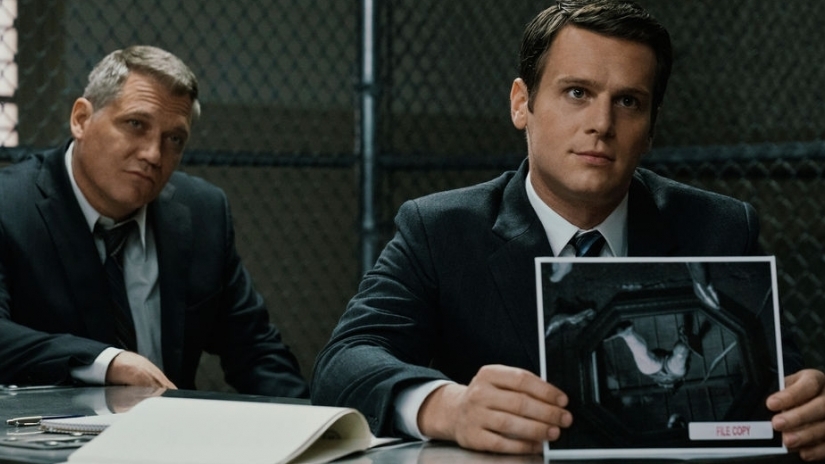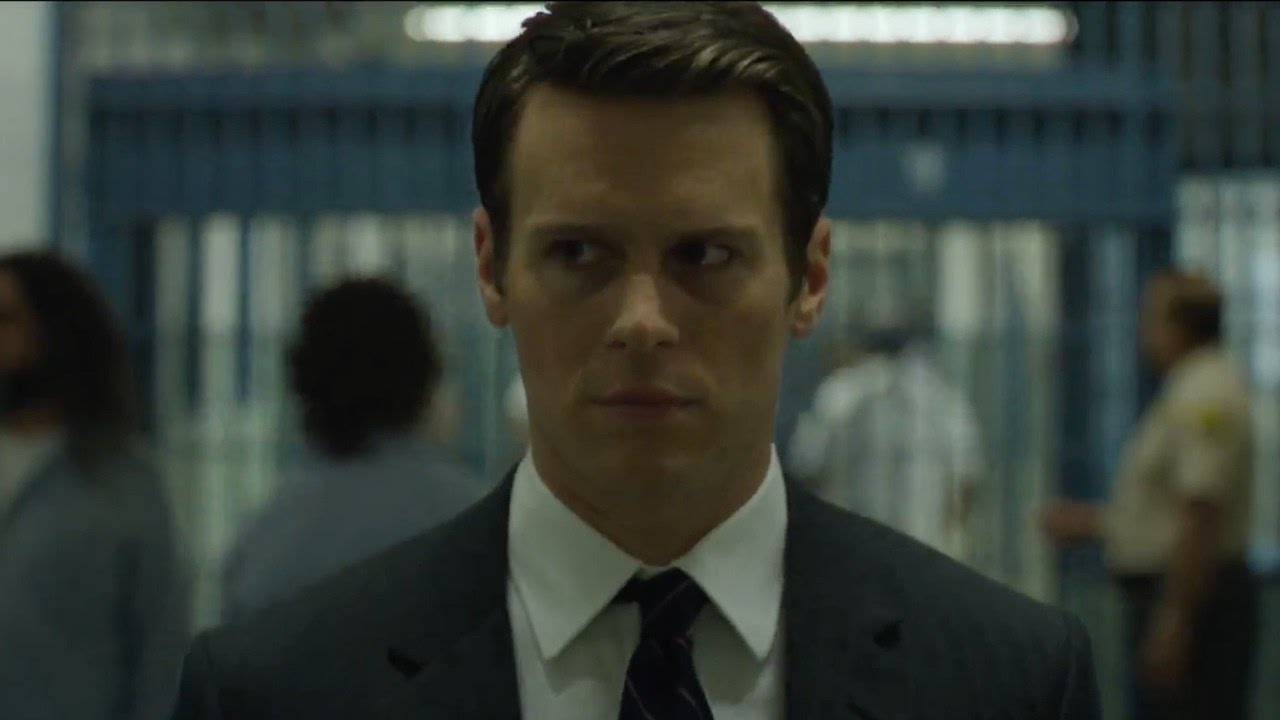Surely by now you’ve inhaled Netflix’s latest binge-worthy crime series Mindhunter and have clicked on this article because, like us, you’re toeing a fine line between complete infatuation and pure unadulterated infuriation with series protagonist, and potential Aussie car salesman, Holden Ford.

Special Agent Holden Ford – or ‘Car-y McCarface’ if we’re sticking with typical ’17 nicknaming conventions – is the fresh-faced FBI agent us true crime junkies have all been waiting for. The character of Holden was based on John E. Douglas, the author of the autobiography Mindhunter: Inside the FBI’s Elite Serial Crime Unit from which the series was adapted for Netflix. The series was directed by David Fincher, with Charlize Theron credited as executive producer.
In the opening scene of episode one, we witness Holden’s inherent empathy and tact for handling the mentally ill in hostage situations. I mean, compared to his ham-fisted colleagues who would rather brandish a gun at every problem, the kid has heart. Within the first ten minutes, the baby-faced agent has managed to nuzzle his way into the hole we quietly reserve for our macabre and morbid fascinations. That’s why we clicked on Mindhunter in the first place, right?
But it isn’t long until Holden – the mysterious human sweater – starts to unravel; revealing glimpses of his inherent man-baby, and oft-times abrasive brattiness. And yet, our desire to see the aspiring criminal behavioural analyst succeed rests comfortably on par with our fury. Ergo, here are three reasons why we’re walking a tightrope between love and hate for Agent Ford.

Holden’s Insta-worthy Inspirational quips
‘You want truffles? You gotta get in the dirt with the pigs.’
The only acceptable response to this little ditty is three consecutive ‘prayer-hands’ emojis and/or an almighty Ilana Glazer-esque ‘YAS KWEEN’. If this isn’t an Instagram-worthy quote to live your life by, then there is no pleasing you.
Power struggles with his feminine side
Holden (for the most part) admires and respects his female peers. He falls for his girlfriend Debbie because she is strong and challenges him on an academic level, and he’s head over Jerry Brudos’ heels for his intelligent and assertive boss, Wendy Carr. Holden is (initially, at least) in awe of Debbie and Wendy’s intelligence, and insists their superiority in the brains department doesn’t intimidate him. And if that anti-macho rhetoric isn’t juicy enough for you, say hello to Holden the ‘considerate lover who regularly initiates cunnilingus’. Debbie, lock this guy down immediately.
Alas, for a supposedly new-age feminist dude (for the ’70s, at least), Holden really shits the bed when he nags Debbie to ‘act like a girlfriend’. I mean, he literally tells her to shut up and listen to his endless complaining and seemingly incessant behavioural analysis – IN THE MIDDLE OF A SUPERMARKET. It was bad enough witnessing Holden barge in on her late-night college cram session and completely disregard her wishes to write her paper in peace. Instead, he sits there childishly fidgeting before launching into an obnoxious work-related tirade, literally forcing Debbie to listen to him. My inner feminist quickly changed tune to screaming, ‘Debbie, RUN!’.

Tickling suspicions
Roger Wade, a vivacious school principal, gives Holden cause for concern when a number of complaints regarding his ‘punishment’ of students surface on the schoolyard. Wade’s penchant for tickling children’s feet in the confines of his office, and then slipping them a dime for their troubles is, umm shall we say, a questionable method of disciplining. The fact that a person in a position of power is paying children to touch them behind closed doors is objectively wrong. But at the same time, the overzealous Wade insists it is only tickling and the children certainly aren’t complaining – after all, this little piggy went to market and came back with a pocketful of change.
At the time of viewing, I was sitting on the fence with this – big time. The plot line read like a conscious ploy to highlight society’s tendency to assume the worst in everyone, particularly middle-aged men. Having said that, if this act of ‘discipline’ was just as innocent as tickling is intended to be – Roger Wade should have had no qualms in abandoning this absurd ritual as per the parents’ requests. Alas, Holden writes himself back in our good books for ‘suggesting’ Wade was acting inappropriately and thus getting that predator the well-deserved boot.

So, should we really be love/hating John E. Douglas or David Fincher? Was Holden an accurate or (likely) dramatised depiction of John all along? We know that the serial killers he interviewed were quoted almost verbatim in Netflix’s portrayal of events, but would it be so farfetched to imagine Fincher assuming creative licence over some of John’s more ‘challenging’ nuances?
Despite our love/more-hate-towards-the-end relationship with Holden, season one of Mindhunter was objectively one of the best and binge-worthy series on Netflix to date. The ’70s-inspired cinematography was both artful and supplemented the underlying dark reality of the storyline. The dreary, and at times bordering on lifeless (pun unintended), energy somehow made it all the more appealing. I don’t have experience in filmmaking, so I can’t even begin to imagine how that works – but by gosh, bingeing the series in two days proves it does. As morbid as our fascination with true crime is, it truly shines a harsh and unflattering light on the ever-troubling nuances of humankind – hopefully in turn, rendering us all the more observant and empathetic for it.
What did you love or hate about Holden Ford, or Mindhunter in general? Let us know below!







